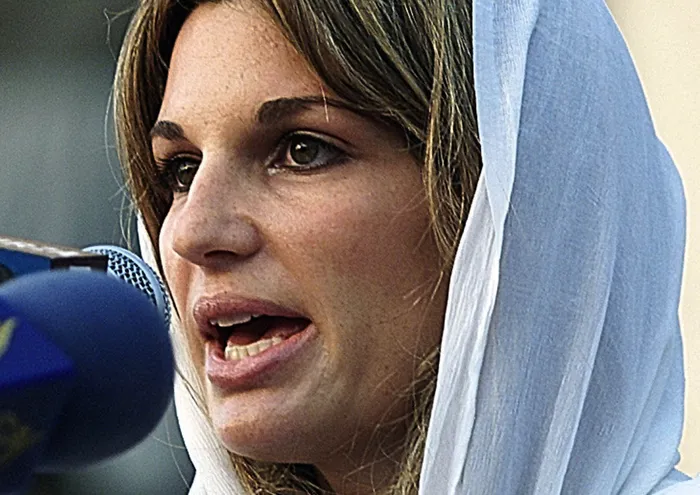Rise and rise of the Twitternaut

Jemima Khan Jemima Khan
The fact that Jemima Khan should be smeared via Twitter - and also defend herself using it - shows how immensely powerful it has become.
More powerful, in fact, than any High Court judge who imposes a super-injunction to keep a scandal out of the public eye.
Even as the judiciary constructs an increasingly substantial body of privacy law, that law is powerless in the face of Twitter and Facebook, where millions read the false allegations made about Miss Khan and Jeremy Clarkson.
While the press is bound by super-injunctions, the Press Complaints Commission and libel law, Twitter’s 200million users can say whatever they want. And they do. A controversial “tweet” on Sunday claimed to list all current super-injunctions, but also contained lies that will hurt those wrongly accused of being involved.
So how did Twitter come to play such a disturbing role in the debate over injunctions?
The “micro-blogging” site lets anyone open a free account and send out “tweets” - short messages of up to 140 characters - which anyone else on Twitter can “follow”, or read.
As a former libel barrister I would say that while in theory victims could sue those who have spread lies about them on Twitter, it would hardly be worth their while. All you need to set up a Twitter account is a mobile phone with internet access; and there’s no point in suing penniless scandalmongers, even if you manage to track them down in the first place.
The site’s scope for instant communication allows for myriad uses from the utterly banal to the internationally important.
Last week, the news that the Osama Bin Laden mission was under way came first via Twitter when Sohaib Athar, an IT consultant in Abbottabad, tweeted: “Helicopter hovering above Abbottabad at 1am (is a rare event).”
While the Twitter company does remove illegal tweets, it acknowledges that it cannot vet every one before it goes online.
“On a practical level, we simply cannot review all tweets created and subsequently delivered every day,” says a spokesman. “There are tweets that we do remove, such as illegal tweets and spam.
“However, we make efforts to keep these exceptions narrow so they may serve to prove a broader and more important rule - we strive not to remove tweets on the basis of their content.”
Certainly, Twitter is the ideal forum for personal spats which are instantly broadcast across the world. Last Christmas, Alan Sugar used Twitter to attack Chris Evans for selling more copies of his memoirs than Sugar had. “U only got there as my readers could not get to the shops due to snow,” tweeted Lord Sugar. “Your readers work in the shops.”
The insults come so thick and fast that some obsessives - “twaddicts” - find it all too much. TV star Stephen Fry has given up tweeting several times, once to write a book, and once because, he tweeted, there was “too much aggression and unkindness around” on Twitter.
With all these ultra-flexible uses, it’s not surprising that Twitter has become one of the most used, and most valuable, websites on earth. The company started selling advertising only a year ago, but already it is making £27million a year and is valued at up to £4.7billion. At the latest count (and the number grows by the second), there are 200million Twitter users, sending out 155million tweets a day. Even the most energetic High Court judge on the planet would find it hard to police that volume of traffic.
The human appetite for gossip is natural and insatiable - and social network sites such as Twitter are perfectly adapted to satisfy that appetite. But it is a stream of gossip that is sometimes unregulated and uncensored, read by children and riddled with lies.
More super-injunctions would encourage unchecked speculation which would turn that tide into an ocean. - Daily Mail